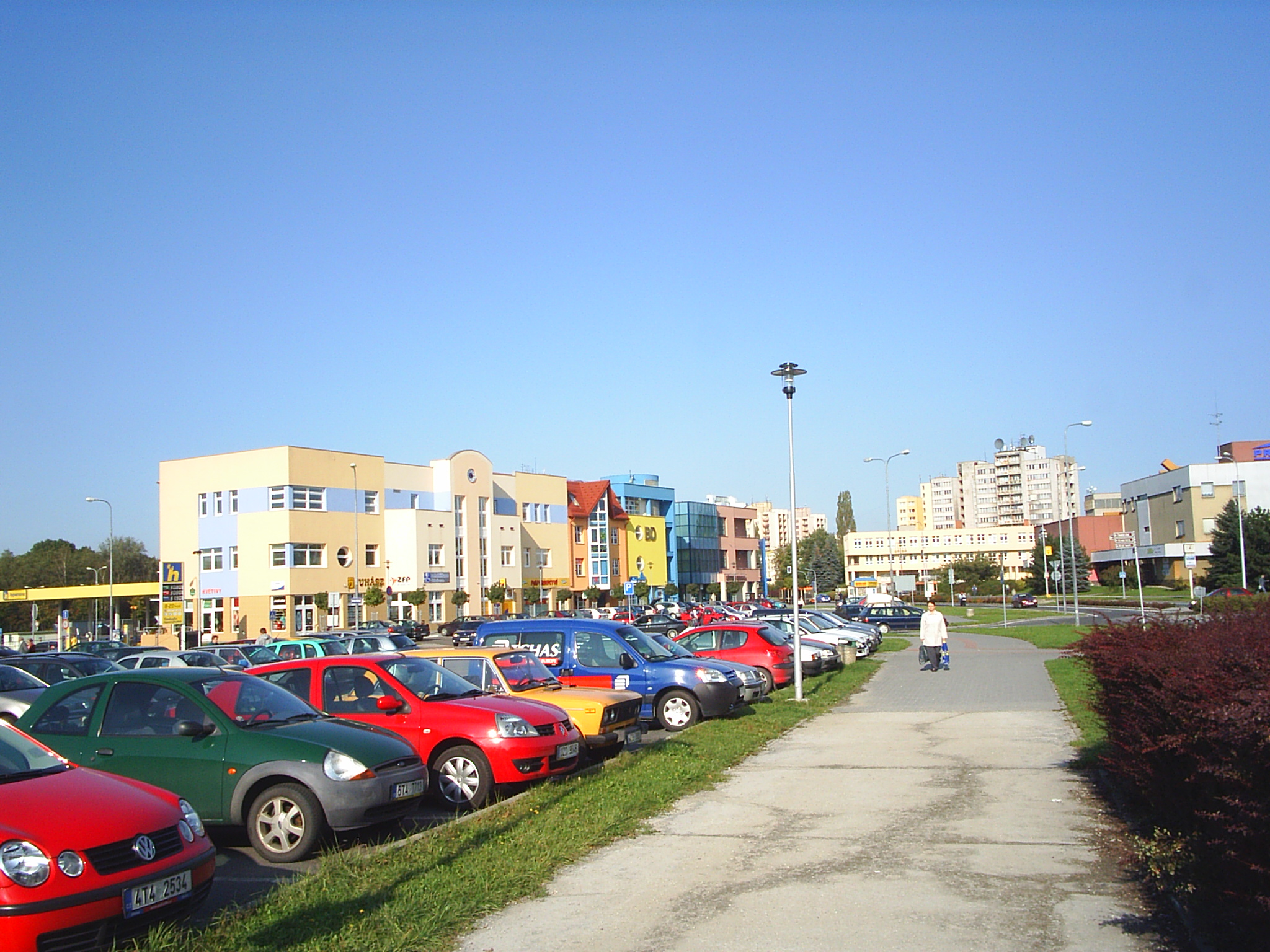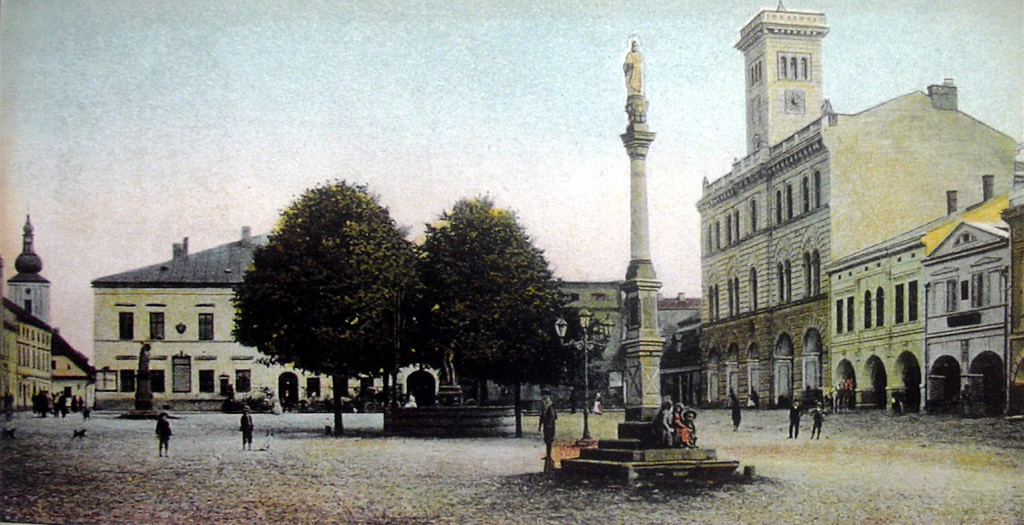|
Bohumín Arson Attack
The Bohumín arson attack took place on 8 August 2020 at an apartment building on Nerudova Street in the town of Bohumín, roughly 300 km north-east of Prague, Czech Republic. Eleven people were killed and fifteen were injured. Police arrested 54-year-old arsonist Zdeněk Konopka in front of the building. The perpetrator, who had four prior criminal convictions, admitted to pouring 8 liters of gasoline into plastic bottles at a nearby petrol station and going to his son's flat. It was bustling with people who were celebrating a birthday party to which the perpetrator was not invited. He poured the gasoline in the hallway within the flat and then onto the entrance doors and set it ablaze. This led to the extremely fast spread of the fire throughout the flat with no escape route possible. The fire killed six people on the 11th story of the 13-story building. Four people managed to save themselves by climbing through balconies to a nearby flat. Five more people, all of them ... [...More Info...] [...Related Items...] OR: [Wikipedia] [Google] [Baidu] |
Bohumín
Bohumín (; ; pl, , german: Oderberg) is a town in Karviná District in the Moravian-Silesian Region of the Czech Republic. It has about 20,000 inhabitants. Administrative parts Bohumín is made up of town parts and villages of Nový Bohumín, Pudlov, Skřečoň, Starý Bohumín, Šunychl, Vrbice and Záblatí. Geography Bohumín is located about north of Ostrava on the border with Poland, in the historical region of Cieszyn Silesia. It lies in the Ostrava Basin. The confluence of the Oder and Olza rivers is situated north of the town. The Oder forms the western border of the municipal territory and the Olza forms the northern border with Poland. The area is rich in water bodies. The artificial lakes Velké Kališovo and Malé Kališovo with a total area of and Vrbické Lake were created by flooding gravel quarries. They are used for recreational purposes. There is also the Záblatský fish pond in the southern part of the territory. History The first written mention of ... [...More Info...] [...Related Items...] OR: [Wikipedia] [Google] [Baidu] |
Orlová
Orlová (; pl, ; german: Orlau) is a town in Karviná District in the Moravian-Silesian Region of the Czech Republic. It has about 28,000 inhabitants. Administrative parts Orlová is made up of four town parts: Lazy, Lutyně, Město and Poruba. Etymology The name is most probably possessive in origin, derived from the personal Slavic name ''Orel / Orzeł'' (literally "eagle" in English), although it may also be of topographic origins. Geography Orlová is located about east of Ostrava, in the historical region of Cieszyn Silesia. It lies in the Ostrava Basin. The town is situated at the confluence of the streams Rychvaldská Stružka and Petřvaldská Stružka. There are several ponds in the territory. History 12th–18th centuries According to legend, Duke Mieszko IV Tanglefoot went hunting with his pregnant wife Ludmila. As they rested upon a hill, an eagle suddenly took flight, frightening the couple. The eagle dropped his prey, which fell to earth near them. Ludmil ... [...More Info...] [...Related Items...] OR: [Wikipedia] [Google] [Baidu] |
World War II
World War II or the Second World War, often abbreviated as WWII or WW2, was a world war that lasted from 1939 to 1945. It involved the vast majority of the world's countries—including all of the great powers—forming two opposing military alliances: the Allies and the Axis powers. World War II was a total war that directly involved more than 100 million personnel from more than 30 countries. The major participants in the war threw their entire economic, industrial, and scientific capabilities behind the war effort, blurring the distinction between civilian and military resources. Aircraft played a major role in the conflict, enabling the strategic bombing of population centres and deploying the only two nuclear weapons ever used in war. World War II was by far the deadliest conflict in human history; it resulted in 70 to 85 million fatalities, mostly among civilians. Tens of millions died due to genocides (including the Holocaust), starvation, ma ... [...More Info...] [...Related Items...] OR: [Wikipedia] [Google] [Baidu] |
Plea Bargain
A plea bargain (also plea agreement or plea deal) is an agreement in criminal law proceedings, whereby the prosecutor provides a concession to the defendant in exchange for a plea of guilt or '' nolo contendere.'' This may mean that the defendant will plead guilty to a less serious charge, or to one of the several charges, in return for the dismissal of other charges; or it may mean that the defendant will plead guilty to the original criminal charge in return for a more lenient sentence. A plea bargain allows both parties to avoid a lengthy criminal trial and may allow criminal defendants to avoid the risk of conviction at trial on a more serious charge. For example, in the legal system of the United States, a criminal defendant charged with a felony theft charge, the conviction of which would require imprisonment in state prison, may be offered the opportunity to plead guilty to a misdemeanor theft charge, which may not carry a custodial sentence. In cases such as an automobil ... [...More Info...] [...Related Items...] OR: [Wikipedia] [Google] [Baidu] |
Frenštát Pod Radhoštěm
Frenštát pod Radhoštěm (; german: Frankstadt (unter dem Radhoscht)) is a town in Nový Jičín District in the Moravian-Silesian Region of the Czech Republic. It has about 11,000 inhabitants. The historic town centre is well preserved and is protected by law as an urban monument zone. Administrative parts Frenštát pod Radhoštěm is made up of one administrative part. Geography Frenštát pod Radhoštěm lies at the confluence of the Lomná and Lubina rivers. The town is located in the Moravian-Silesian Foothills and extends into the Moravian-Silesian Beskids at the western tip. The mountain of Radhošť, contained in the name of the town, is located south of the town outside the municipal territory. History The first written mention of Frenštát is from 1382. It was probably founded during the colonization between 1293 and 1316. In 1473, tt was first referred to as a market town. In the 16th century, it became a prosperous market town with developed trade and handicraf ... [...More Info...] [...Related Items...] OR: [Wikipedia] [Google] [Baidu] |
Česká Televize
Czech Television ( cs, Česká televize, italics=no ; abbreviation: ČT) is a public television broadcaster in the Czech Republic, broadcasting seven channels. Established after the Velvet Revolution in 1992, it is the successor to Czechoslovak Television founded in 1953. History 1953–1992: Czechoslovak Television Founded on 1 May 1953, Czechoslovak Television (ČST) was the state television broadcaster of Czechoslovakia used as a state propaganda medium of the then socialist state. It was known by three names over its lifetime: cs, Československá televize, sk, Československá televízia (until 1990) and (from 1990 until 1992). ČST originally consisted of a single channel and limited experimental broadcasting in 1953. Regular broadcasts began on 25 February 1954 and on 10 May 1970, a second channel was launched. The broadcast language of ČST was predominantly Czech in the first channel, Slovak for selected programming, and both for news. The second channel was sp ... [...More Info...] [...Related Items...] OR: [Wikipedia] [Google] [Baidu] |
Gun Law In The Czech Republic
Gun laws in the Czech Republic in many respects differ from those in other European Union member states ''(see Gun laws in the European Union)''. The "''right to acquire, keep and bear firearms''" is explicitly recognized in the first Article of the Firearms Act. At the constitutional level, the Charter of Fundamental Rights and Freedoms includes the "''right to defend own life or life of another person also with arms under conditions stipulated by law''". A gun in the Czech Republic is available to anybody subject to acquiring a firearms license. Gun licenses may be obtained in a way similar to a driving license – by passing a gun proficiency exam, medical examination and having a clean criminal record. Unlike in most other European countries, the Czech gun legislation also permits a citizen to carry a concealed weapon for self-defense – 252,245 out of 308,990 gun license holders have a concealed carry permit (31 December 2021). The most common reason for firearm posse ... [...More Info...] [...Related Items...] OR: [Wikipedia] [Google] [Baidu] |
Gas Pistol
A gas pistol is a non-lethal weapon used for self-defense and other purposes. It is typically a close-to-exact replica or conversion of a traditional handgun made to be able to fire blanks or tear gas cartridges. Effective range is up to 4.5 metres depending on caliber. For legal purposes various techniques are used during manufacture/conversion to prevent the use of live ammunition, such as using calibers exclusive to gas cartridges, welding obstacles into a non-removable barrel and using malleable metal alloys. Gas pistols are prevalent in European countries with strict gun control laws. Gas pistols are also used in weapons training, and as starting pistols, flare guns, and movie props. Calibers Most popular calibers are the 9mm Knall (9x17 mm R K, 9 mm R K, .380 Knall) for revolvers and the 9 mm PAK (9x22 mm) for semi-automatic. Other types include the .315 Knall, 8 mm Knall (8x20 mm), .22 Lang Knall, .45 Short Knall (.45 Knall) and the 6 mm percussion cap ... [...More Info...] [...Related Items...] OR: [Wikipedia] [Google] [Baidu] |
Blesk
''Blesk'' is a daily tabloid newspaper published in Prague, the Czech Republic. Its name translates as ''lightning''. History and profile ''Blesk'' was first published on 14 April 1991. In 1992, it launched a weekly edition published on Sundays and its magazine, which is a comprehensive TV guide, was started in 1993. The paper is headquartered in Prague and was owned by Ringier until December 2013. Its owner is the Czech News Center (CNC) and its publisher is the Czech Print Center, a subsidiary of the CNC. Its lay-out is modelled from the Swiss tabloid ''Blick'', also published by Ringier, and the German daily ''Bild'' which is published by ''Axel Springer SE''. Thus, ''Blesk'' is a tabloid newspaper and is neutral in its political and religious leaning. The daily's sister paper is '' Aha!'', another tabloid. Vladimír Mužík is among the former editor-in-chiefs of the daily who served until April 2011 when Pavel Šafr was appointed editor-in-chief of the paper. Šafr's ten ... [...More Info...] [...Related Items...] OR: [Wikipedia] [Google] [Baidu] |
Remand (detention)
Remand, also known as pre-trial detention, preventive detention, or provisional detention, is the process of detaining a person until their trial after they have been arrested and charged with an offence. A person who is on remand is held in a prison or detention centre or held under house arrest. Varying terminology is used, but "remand" is generally used in common law jurisdictions and "preventive detention" elsewhere. However, in the United States, "remand" is rare except in official documents and "kept in custody until trial" is used in the media and even by judges and lawyers in addressing the public. Detention before charge is referred to as custody and continued detention after conviction is referred to as imprisonment. Because imprisonment without trial is contrary to the presumption of innocence, pretrial detention in liberal democracies is usually subject to safeguards and restrictions. Typically, a suspect will be remanded only if it is likely that he or she coul ... [...More Info...] [...Related Items...] OR: [Wikipedia] [Google] [Baidu] |





